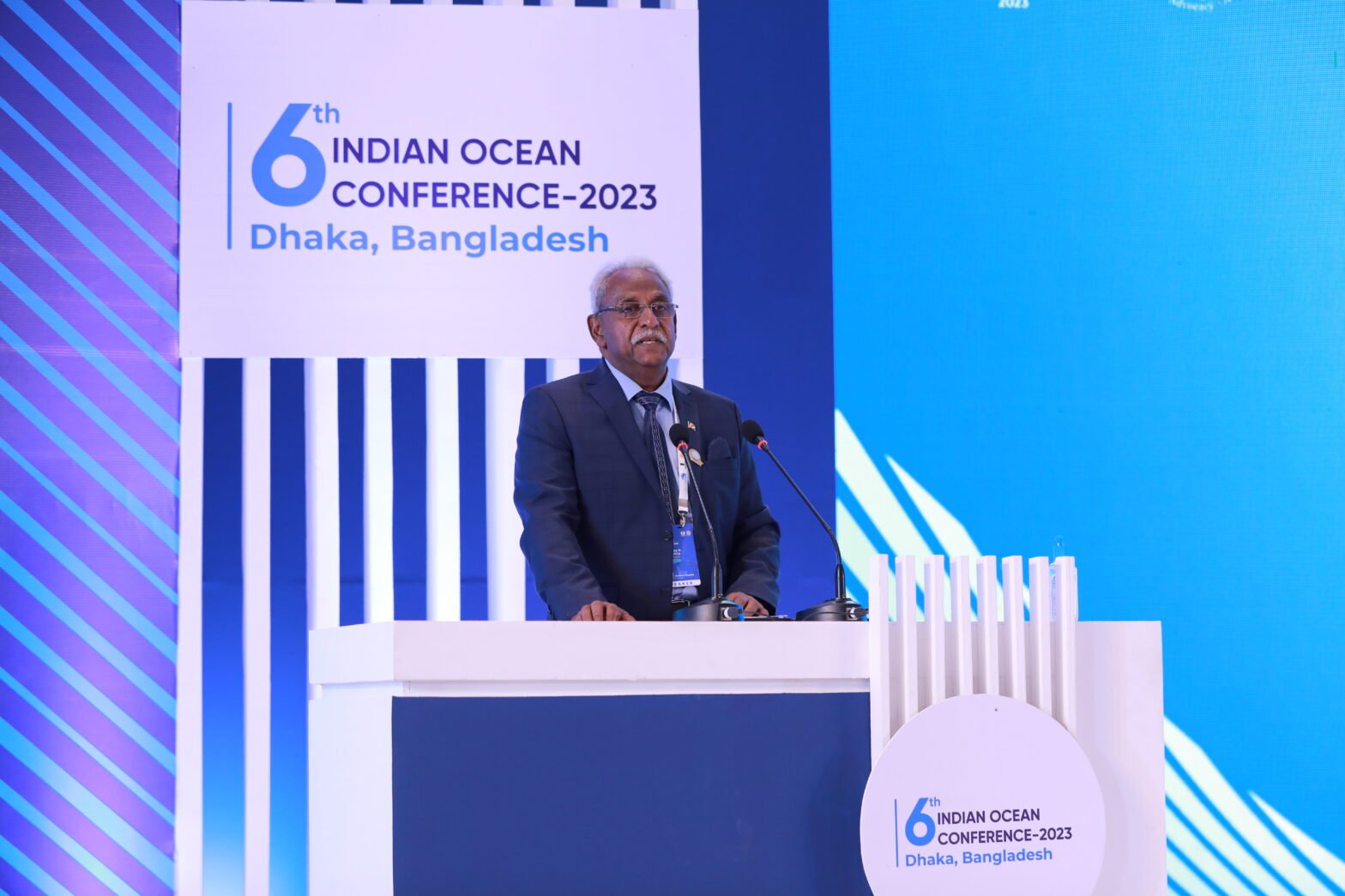In these turbulent times, when the world grapples with unprecedented challenges and non-traditional security threats, Indian Ocean region stands as a beacon of hope amidst the storm. Peace, prosperity and partnership for resilient future resonates very deeply with us, guiding our deliberations towards practical solutions that will shape the destiny of the region. Today we have a rare opportunity if you wish a clarion call to champion peace and stability in the Indian Ocean and beyond. We must confront the harsh realities of conflict and instability because they are the fertile breeding grounds that nurture nefarious activities and perpetuates a sense of insecurity.
We cannot afford to remain passive and to be passive spectators, as the consequences of instability spill over into our lives, tarnishing the fabric of our societies. Take for instance the insidious trafficking of narcotics that plagues the Indian Ocean. Just within a decade, our once pristine waters have transformed into this highway for trade in illicit goods, a conduit of destruction that ravages our nations and compromises our very foundations. Let me illuminate the gravity of this situation. In a small nation of Seychelles, a small island state with its modest population of 100000, we find ourselves shackled by the devastating grip of heroin addiction. Astonishingly, a staggering 10% of our population now bear the heavy burden of this affliction. The implications of such calamity extend far beyond the individual itself impacting the security, stability and the well-being of the entire region.
Our workforce, our economic prowess and the promise of prosperous future all hang in the balance. We cannot allow this scourge to continue. Seychelles went out with limited resources and has shown unwavering determination in the face of adversity. Through joint patrols with our regional partners, we have bolstered our maritime domain awareness. Fortifying our ability to counter these criminal activities, we have strived to strengthen the pillars of law enforcement and judicial cooperation. Yet my esteemed colleagues, let us be resolute in our understanding that these measures alone are simply not enough. We demand the united front, a symphony of coordinated efforts with information sharing as its harmonious refrain. Together as a region in unison with international partners and organizations and agencies, we must pre-empt and dismantle these nefarious drug trafficking networks. But let us not only focus solely on the perils of narcotics.
The challenge of combating illegal, unreported, and unregulated (IUU) fishing looms large over our heads, casting a shadow upon the sustainable management of our marine resources and the livelihoods of our coastal community. In this regard, Seychelles acknowledges the pivotal role played by existing regional and international frameworks and agreements on fisheries management, such as the Indian Ocean Tuna Commission, IOTC and the Port State Measures Agreement, the PSMA. We have embarked upon a national plan of action, bolstering our monitoring, control, and surveillance capabilities. We have engaged civil society and the private sector, recognizing the significance of their involvement in combating IUU fishing.
Furthermore, we have joined the Fisheries Transparency International, which is FITI, to uphold the principles of transparency and accountability. However, the need for further cooperation is indispensable. We must elevate our collective capacity and awareness in the realm of IUU, and we must also recognize that the success of our efforts to address the challenges facing our region requires a strong and unwavering commitment from all of us. Additionally, it is imperative that we acknowledge another critical issue that plagues our region and that is human trafficking. This heinous crime preys on the most vulnerable among us, robbing individuals of their dignity and humanity. It is an affront to our shared values and freedom of justice, and we cannot turn the blind eye to this existence.
The Indian Ocean Region, with its vast and porous borders is a prime target for human traffickers. Trafficking victims are often smuggled across borders, exploited for labour or sex, and subjected to unspeakable horrors. This is a challenge that must be addressed through collaborative efforts among all our nations. We need to strengthen our border control measures, improve law enforcement capabilities, and enhance cooperation among our countries to combat this issue effectively. My dear colleagues, to achieve our shared goals, we need to focus on building trust, enhancing dialogue, promoting cooperation among our countries. We must work towards a more integrated and connected region where trade and investment can flourish and where people can move freely, whether for business or for leisure. Let us continue to work together with the shared vision and purpose so that we can create a more stable, prosperous, peaceful Indian Ocean for ourselves and for future generations.
Author Brief Bio: Mr. Charles E. Fonseka is the Minister of the Interior, Government of Seychelles.
Note: This article is based on the Text of the Speech delivered by Mr. Charles E. Fonseka, Minister of the Interior, Government of Seychelles, at the 6th Indian Ocean Conference 2023 in Dhaka on 13 May 2023.




